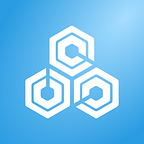Web 3.0
Web 3.0 is the evolution of the internet, using concepts like Cryptocurrency, Decentralization, and greater user utility. It is believed that in Web 3.0, the user is the owner of their content, unlike the current scenario. So, Web 3.0 could be defined as the next generation of the internet that will make websites and applications emphasize machine-based comprehension of data to provide a data-centric and semantic web. Since Web 3.0 hasn’t been put into practice yet, there is no appropriate definition.
Semantic alludes to the control of recognizing, understanding, assessing and responding appropriately. Web 3.0 depends widely on Artificial Intelligence and machine learning, where semantics is crucial because it determines the interactive level. This word was coined by Sir Tim Berners-Lee, who founded the world wide web as we know it today.
An essential aim of web 3.0 is to make more smart, intelligent, connected and open websites.
Difference Between Web 1.0, Web 2.0 and Web 3.0
- Web 1.0 is a read-only web where individuals can peruse data composed on websites. It started in 1989 and went up to 2004. Some of the primary technologies back then were HTML (HyperText Markup Language), HTTP (HyperText Transfer Protocol) etc
- Web 2.0 is a read-write web where individuals can examine and compose websites and applications. It is believed to have started in 2004 up until the present day. Companies like Google, Uber, Facebook and other social media platforms arose.
- Web 3.0 may be a read-write-interact web (based on artificial intelligence) where individuals can peruse, compose and correspond to content, even with 3D illustrations, on websites and apps.
Need For Web 3.0
The aim behind web 3.0 is to create searches on the web much quicker, simpler and more effective to get results for searches, including very complex ones in no time.
Eventually, Web 2.0 became more out of date, and the individuals started being more concerned about their data.
Since most of the used websites or applications were headed by behemoths such as Google, Facebook, Microsoft and Amazon, it raised a few complaints. Individuals were given restricted administration over their information utilization, which raised various charges against these multibillion-dollar enterprises and various little businesses that proliferated on the web. Many complaints have been filed regarding the misuse of individual personal data and the unethical use of artificial intelligence. All these raise safety concerns for Web 2.0, And hence many believe Web 3.0 is going to be a much better and safer version.
Advantages of Web 3.0
- Data Privacy and Control- The end-users will get the foremost critical advantage of information encryption to secure their data from being misused, especially large companies like Google. Therefore, the end-users will have complete ownership and privacy of their data.
- Seamless Services- Individuals will be able to access their data at any given circumstances as there is a guarantee of decentralized data storage. Individuals will also have multiple backups, which will help them in case of any server failure. Also, no private or government organization will have the right to interfere with any services or websites.
- Transparency- Individuals will have their data tracked and the code behind the platform inspected, irrespective of which blockchain platform end-users use.
- Open Accessibility to Data- The data will be available everywhere and through all gadgets. The objective is to extend data collection and its availability to worldwide end-users by permitting smartphones and other devices to get the data on the computer in case it is synced.
- Restriction less Platform- Users can make their addresses or interact with the network as the blockchain network would be accessible to all. Users cannot be discriminated against based on their gender, financial status, geographical location or sociological factors. The main advantage to this would be it will make it easier for users to exchange their wealth or riches anywhere over the world in no time.
- Enhanced Data Processing- Web 3.0 would be advantageous for problem-solving and high knowledge creation tasks. It uses artificial intelligence to analyze and process vast quantities of data.
To read more articles click here
If you liked this article, give it a bundle of “claps” to help people discover it!
Handy links:
